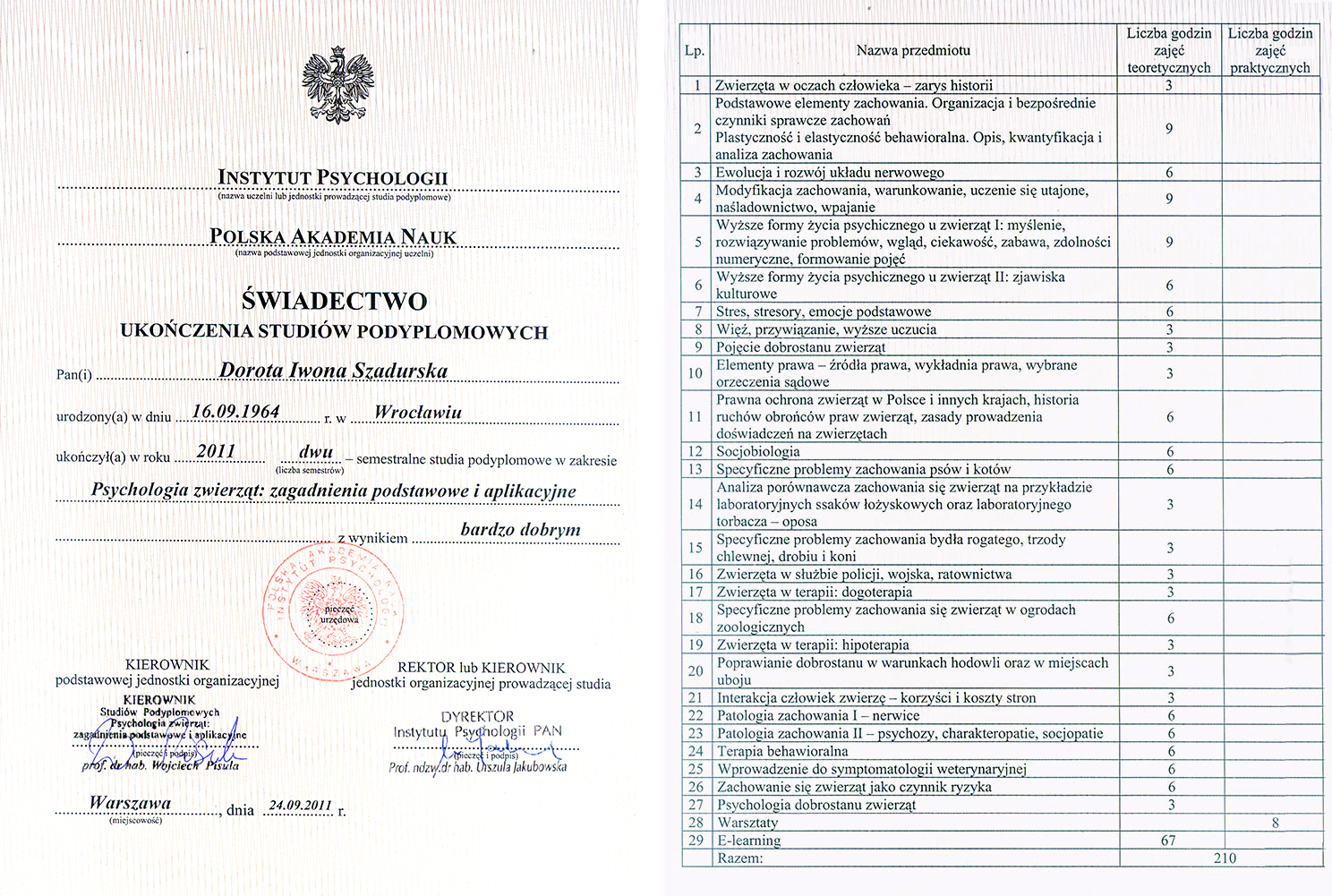Dorota Szadurska, Cat Behaviourist and Counsellor.
Cat has become one of the most popular pets nowadays. As always, unfortunately, popularity does not necessarily goes with true wellbeing. Although we all love our cats, we often don't fully understand their needs. There is nothing surprising about this, by the way; the cat is still seen as a "maintenance-free" animal, a "simpler choice" when we compare it to a dog, because it doesn't need to be walked. However, the cat is a very delicate and sensitive animal, very vulnerable to stress, and if it experiences it in a chronic way, it easily develops various diseases, from somatic to those affecting the psyche, including depression. The first signs of loss of feline equilibrium are very difficult for carers to pick up on, as they often are just manifestations of an increase in the cat's altogether natural behaviour, such as grooming or hunting, or a decrease in activity, which is usually put down to age. When, over time, these behaviours start to develop into compulsive behaviours, such as stereotypies, aggressive behaviours or apathy or depression, it is already difficult to find the root cause of the cat's frustration or anxiety.
A behaviourist is someone who tries to help the carer look at the world around the cat through their own eyes. Of course, it is not really possible to look at the world even through the eyes of another human, let alone be sure about those of a cat. However, the behaviourist will show you what is really necessary for the well-being of your cat, because there are still a lot of myths spread around that have nothing to do with the cat's real welfare. The behaviourist is not a guarantee that all problems will be solved, but he is the hope for cat-human understanding and, with good cooperation and openness of the carers to change, is a great chance for success.
For more than 12 years now have I been teaching carers to understand the secretive cat world, helping to improve relationships with their cat friends and solving problems that can arise in even the best feline-human relationship. On a daily basis, as visitors to my website already know, I live with my feline family of various ages, from newborn kittens that I had to guide through a period of socialisation until recently, to almost 17-year-old cat pensioners. Each of my cats is a different personality, each has taught me something different. And above all, they have taught me to remember that they still have a lot to tell me!
Dorota Szadurska, COAPE Behaviourist
Graduate in Animal Psychology at Polish Academy of Sciences
Graduate in Nursing and Breeding of Companion Animals at the Wrocław University of Life Sciences
Member of The International Society of Animal Professionals



